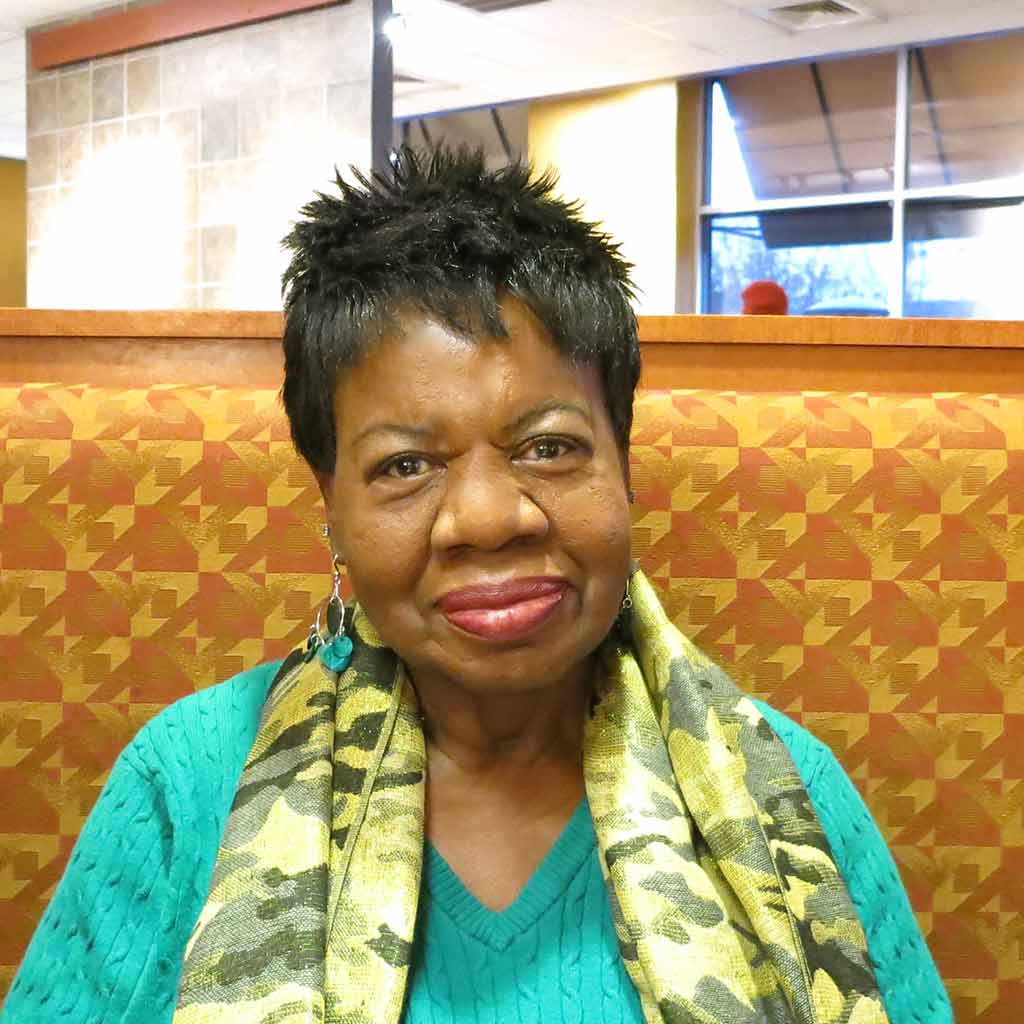
Person of the Week
Rosie Willis
Community Garden Manager, Storytelling Biographical and Traditional
I thought, “What am I doing that with all these vacant lots around my house?” They were overgrown with all kinds of weeds and debris and all kind of stuff. I thought, “Why can’t we have a garden in this community?” It would certainly improve the community.
1. What led you to the mission of being a community garden manager?
In our neighborhood where I live, people are not overly interested in starting up something like this garden. Starting up a community garden is not some easy task. It calls for a lot of work and a lot of involvement and a lot of talking to various people – especially politicians.
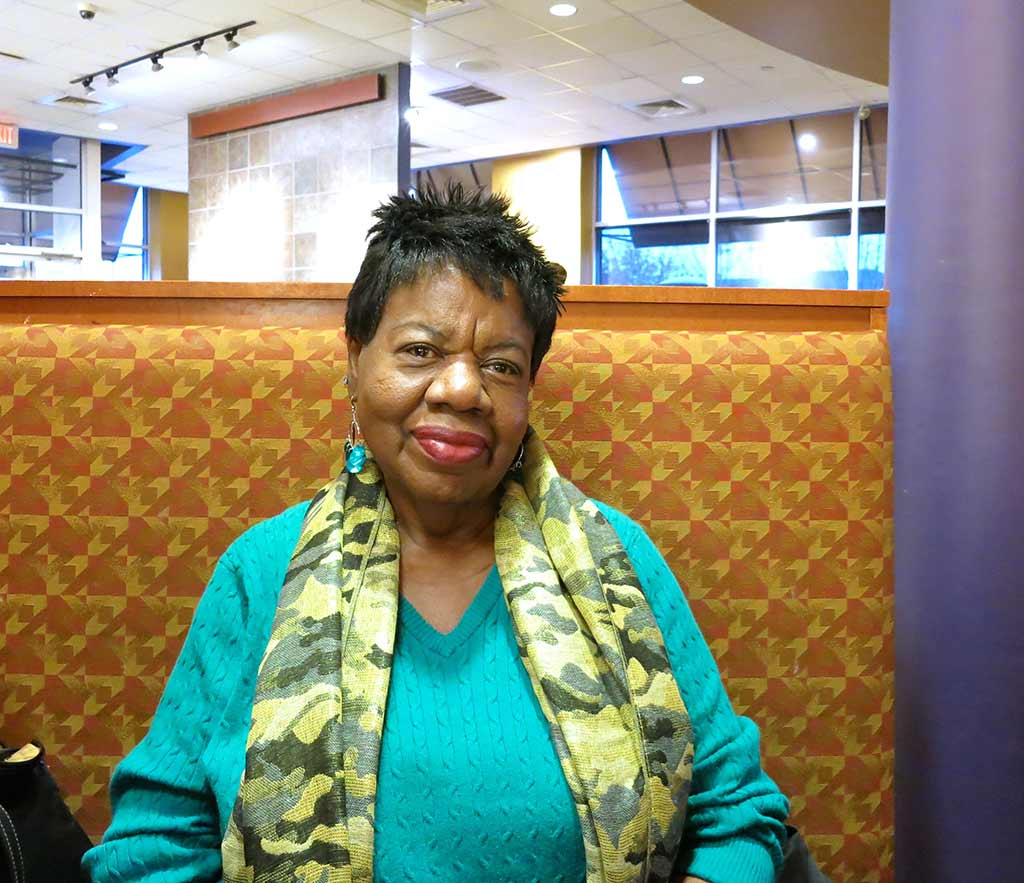 I had a daycare and closed it down and became involved with Gateway Greening. I just wanted to be a gardener and thought I could pick up a garden site with Gateway Greening. Then I thought, “Why am I doing that with all these vacant lots around my house?” They were overgrown with all kinds of weeds and debris and all kinds of stuff. I thought, “Why can’t we have a garden in this community?” It would certainly improve the community.
I had a daycare and closed it down and became involved with Gateway Greening. I just wanted to be a gardener and thought I could pick up a garden site with Gateway Greening. Then I thought, “Why am I doing that with all these vacant lots around my house?” They were overgrown with all kinds of weeds and debris and all kinds of stuff. I thought, “Why can’t we have a garden in this community?” It would certainly improve the community.
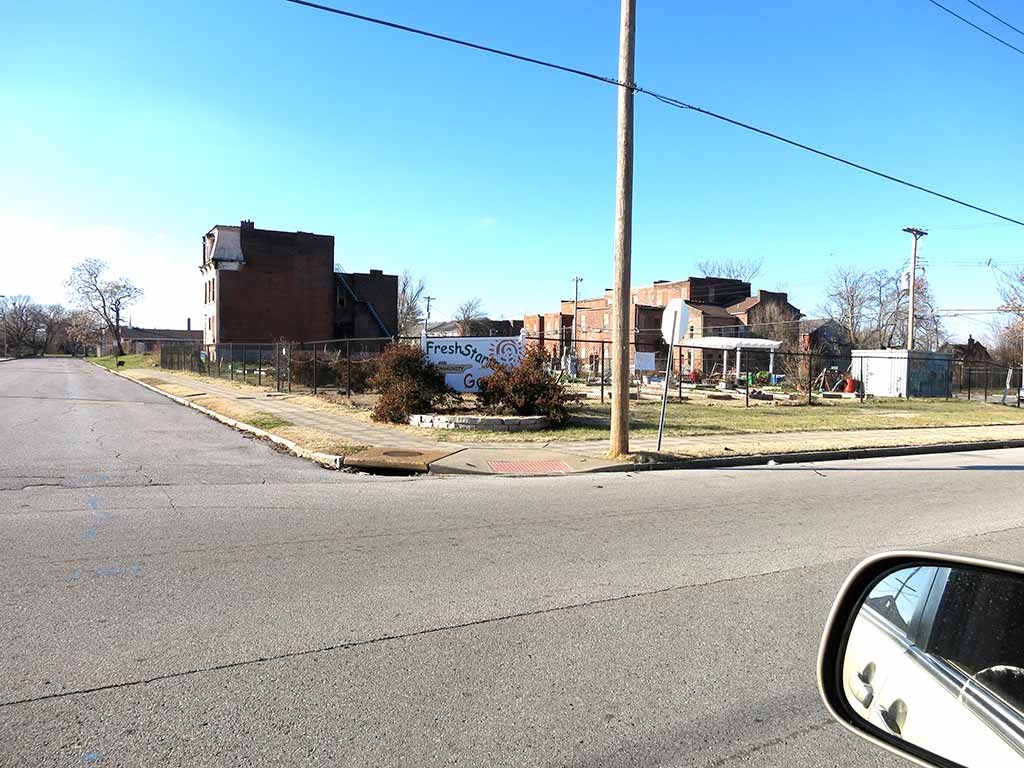 The more I thought about that, the more it just happened. I started asking people, “How do you feel about having a garden in the neighborhood? Do you feel like having a garden?” They said, “Oh, ya. I think we should have a garden. I really think that is a great idea.” Foolish me, I believed them. So I asked a few people about gardening. They all said, “Yes.” Then I had to find out who owned the land. I went downtown to city hall. (Click on pictures to enlarge them.)
The more I thought about that, the more it just happened. I started asking people, “How do you feel about having a garden in the neighborhood? Do you feel like having a garden?” They said, “Oh, ya. I think we should have a garden. I really think that is a great idea.” Foolish me, I believed them. So I asked a few people about gardening. They all said, “Yes.” Then I had to find out who owned the land. I went downtown to city hall. (Click on pictures to enlarge them.)
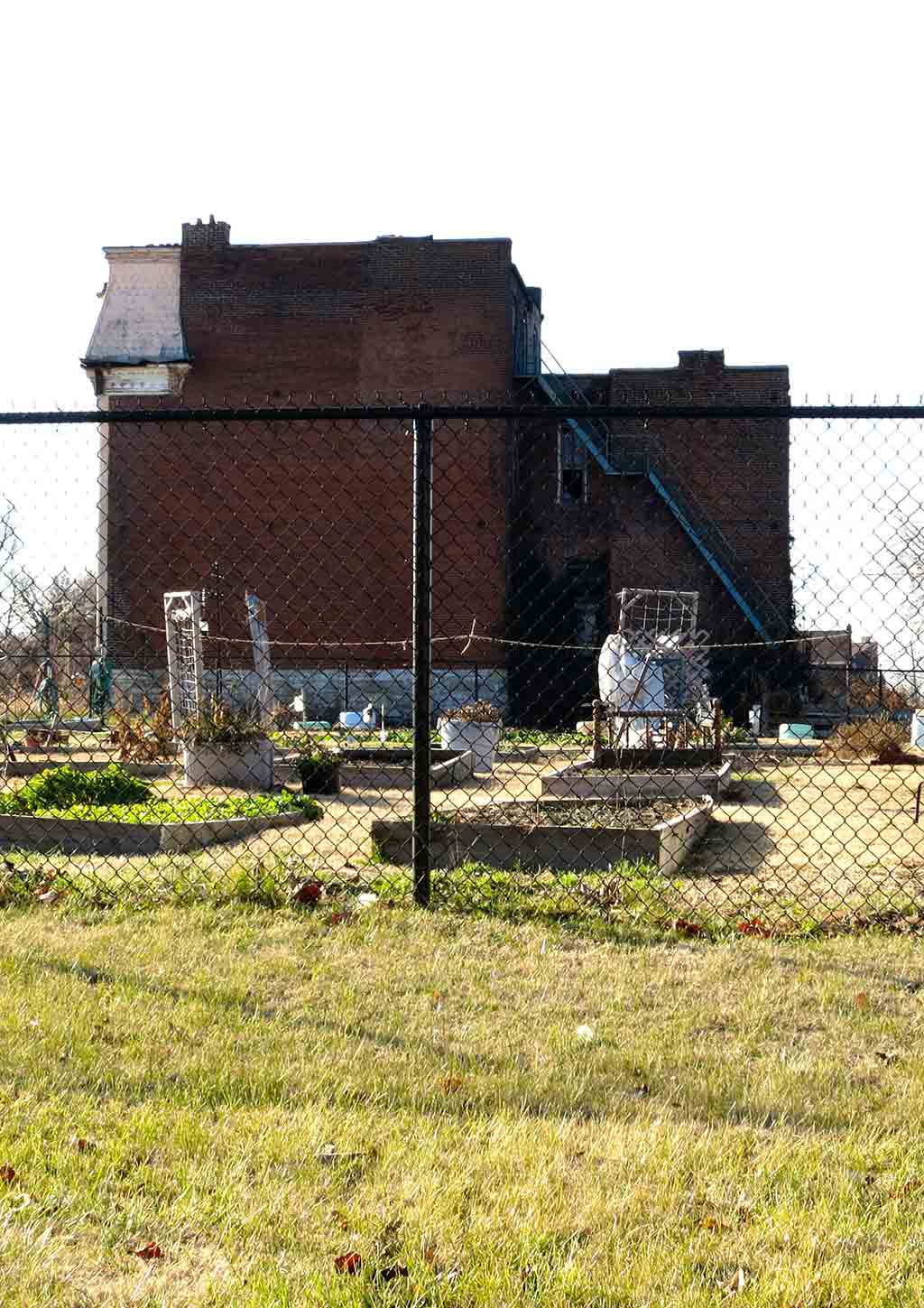 I found out the land belongs to the city and I had to go through a lot of people just to get the land. All I had to do was fill out a piece of paper and they said it would be a dollar for five years to lease the land. It’s not like I called a meeting and asked, “Well, do you want to be the manager? Do you want to be the so-an-so? Do you want to be the secretary?” I just took it upon my own and I am the garden manager. A lot of people don’t want to take on that responsibility. I don’t know why except they might feel insecure or threatened or maybe they just don’t want to be bothered. (These are winter images of the Fresh Starts Community Garden.)
I found out the land belongs to the city and I had to go through a lot of people just to get the land. All I had to do was fill out a piece of paper and they said it would be a dollar for five years to lease the land. It’s not like I called a meeting and asked, “Well, do you want to be the manager? Do you want to be the so-an-so? Do you want to be the secretary?” I just took it upon my own and I am the garden manager. A lot of people don’t want to take on that responsibility. I don’t know why except they might feel insecure or threatened or maybe they just don’t want to be bothered. (These are winter images of the Fresh Starts Community Garden.)
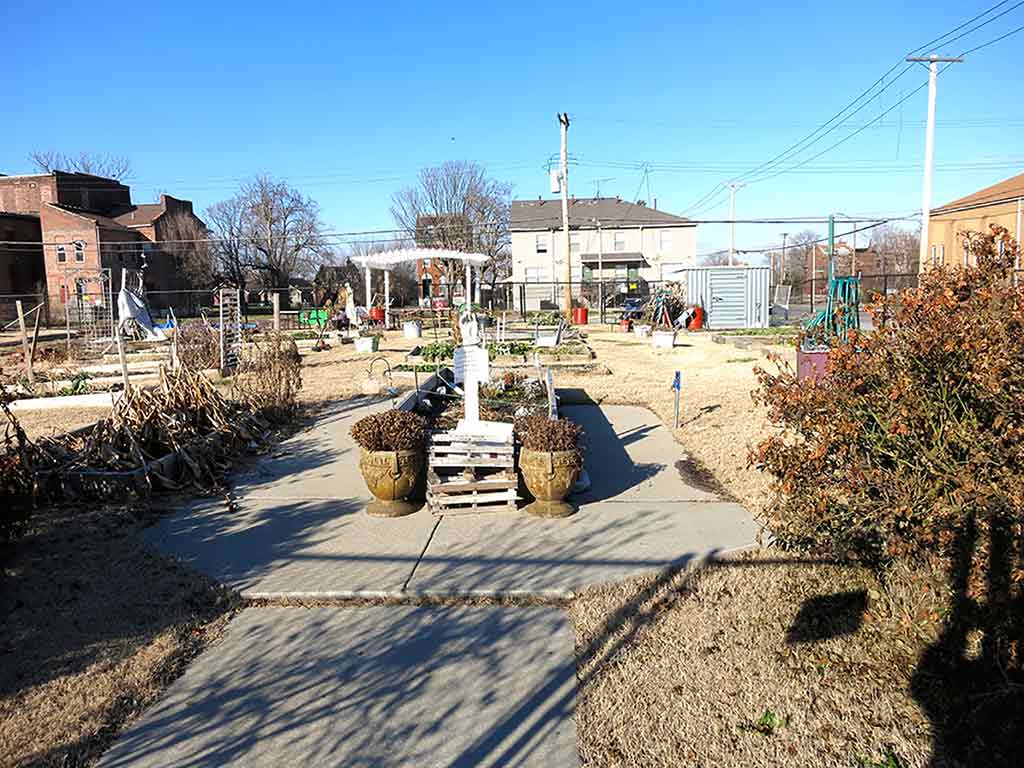 I invite people to come to the garden and see what we are doing. I always tell people our garden is not in the best neighborhood. It is it an old run-down neighborhood. The garden is in a very low-income neighborhood. That’s why I took on this gardening project. The garden is at the corner of Dayton and Glasgow in St. Louis, Missouri. (To read more about the Fresh Starts Community Garden, go to their Facebook Page.)
I invite people to come to the garden and see what we are doing. I always tell people our garden is not in the best neighborhood. It is it an old run-down neighborhood. The garden is in a very low-income neighborhood. That’s why I took on this gardening project. The garden is at the corner of Dayton and Glasgow in St. Louis, Missouri. (To read more about the Fresh Starts Community Garden, go to their Facebook Page.)
A lot of the people who come to this garden group have all kinds of challenges. There are mental challenges, physical challenges, and what have you. They are all great gardeners. They have a garden plot in the garden. A lot of the gardeners have said, “Oh Rosie, this is so good for me. I sure am glad that you have allowed me to work in your garden.” Well I tell them all the time, “This is not my garden. The garden is not my garden. I don’t know what your beliefs are religiously, but the garden belongs to God.”
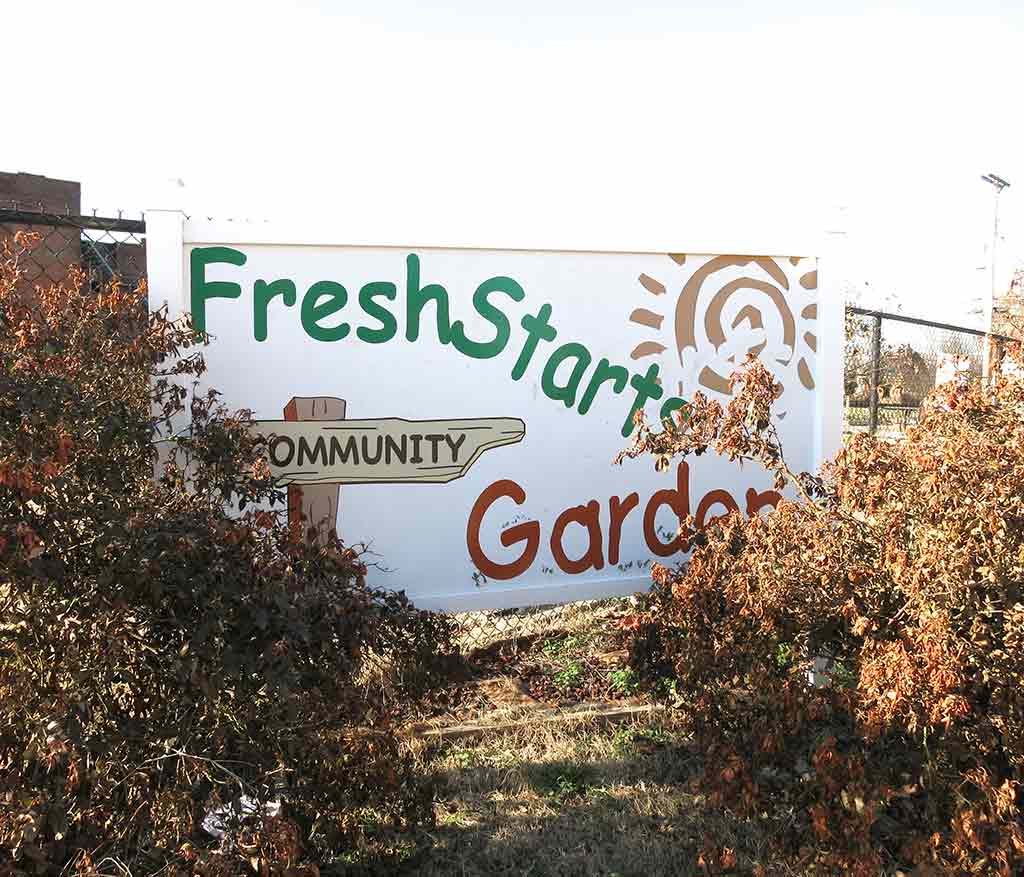 We don’t say, “Well, you can garden because you live in the community, or you can’t because you don’t live in the community.” We welcome everybody. I don’t care where you live. We welcome everybody. The community is a group of people getting together. OK? We get in that garden and we don’t ask, “Well, where do you live?” “Do you live around the corner?” No, we don’t ask that. There are people participating from the Barnes Jewish Behavioral medicine. We don’t ask them, “Well what’s wrong with you? Why are you in the garden?” No. We welcome people.
We don’t say, “Well, you can garden because you live in the community, or you can’t because you don’t live in the community.” We welcome everybody. I don’t care where you live. We welcome everybody. The community is a group of people getting together. OK? We get in that garden and we don’t ask, “Well, where do you live?” “Do you live around the corner?” No, we don’t ask that. There are people participating from the Barnes Jewish Behavioral medicine. We don’t ask them, “Well what’s wrong with you? Why are you in the garden?” No. We welcome people.
As long as there are people who have a genuine interest in gardening, they can come to the garden. They must have that interest in gardening. They fill out an application and they sign a little contract that states that you must keep your garden free of weeds and debris and what have you, you must keep your harvest up because we don’t want rotten food on your vines. If there is rotten food, that attracts insects and creates other plants to become ill and sick. So if you can do that, come to the garden. Come every day. But you don’t have to come every day. If you can come one day a week, you are welcome.
 We have some couples out there who have some difficulties. One couple, the husband has had a kidney transplant, a bad heart and all kind of problems. So when he comes he sits in his chair with a long hoe. He will sit in that chair and pull weeds out because the hoe is made with a loop. He sits in that chair and pulls the weeds out.
We have some couples out there who have some difficulties. One couple, the husband has had a kidney transplant, a bad heart and all kind of problems. So when he comes he sits in his chair with a long hoe. He will sit in that chair and pull weeds out because the hoe is made with a loop. He sits in that chair and pulls the weeds out.
The other couple, the wife is kind of sickly and has a bad heart. She waters the garden. In our garden there is something everyone can do no matter what their health situation is. There are chairs if they cannot stoop and bend – or whatever – they can sit in a chair and garden. We don’t turn down anyone just as long as they are really interested in community gardening – even if they don’t come every day.
A lot of people think that they have to come to the garden every day. No, you do not have to come to the garden every day. If you come and give your garden a really good watering and a really good weeding, you don’t have to come the next day. And, please don’t come if it is raining. When the garden gets saturated with water it really can’t hold any more. It doesn’t need any more watering. I have to teach people, “You don’t have to water the garden after a soaking rain. The soil is nice and saturated with water.”
2. What does this mission mean to you?
The garden is six years old. I meet a lot of people and I talk personally to them about the garden. I love it.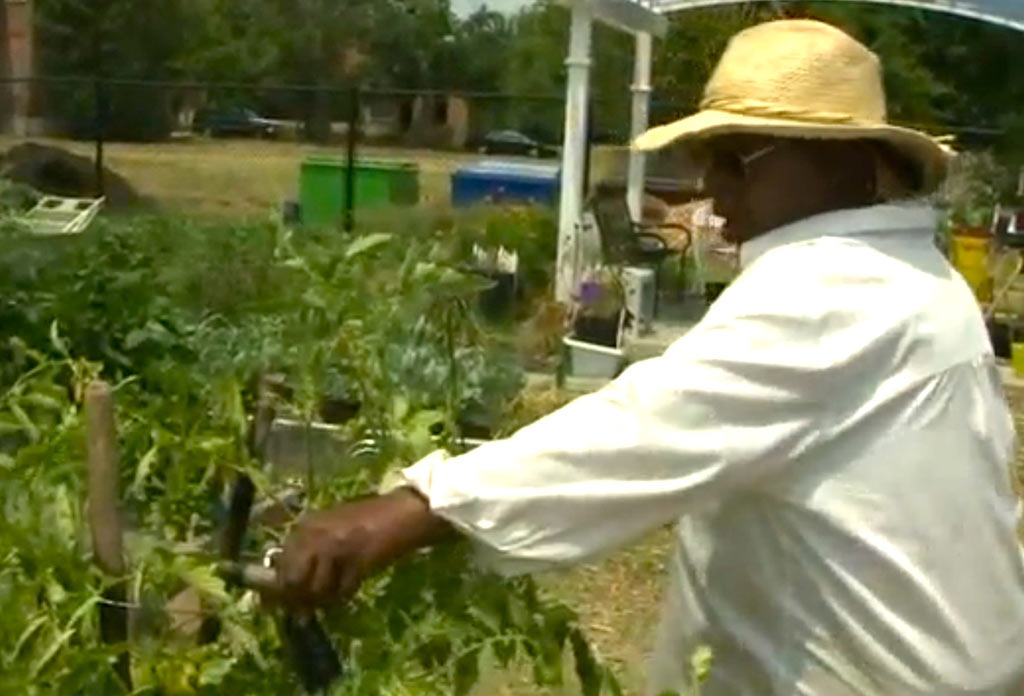 I love talking with people. Sure the responsibility can get to be weighty because I want to do more in the “dirt” kind of work rather than managing. I would like to get out of the driver’s seat and get out in the dirt more. But I have to wear all these different hats.
I love talking with people. Sure the responsibility can get to be weighty because I want to do more in the “dirt” kind of work rather than managing. I would like to get out of the driver’s seat and get out in the dirt more. But I have to wear all these different hats.
But I love managing the garden. I’m always talking to someone about the garden. I’m meeting folks and meeting with people from Operation Brightside, Gateway Greening, UMSL’s (University of Missouri St. Louis) extension program, people from New York, California, Arizona, Tennessee – from everywhere. (To see a Fox television award video, click here.)
I have to meet people, meet and greet, and make people feel good in the garden. I know that I do that. I have people asking, “Miss Rosie could we come back and work in your garden next year?” 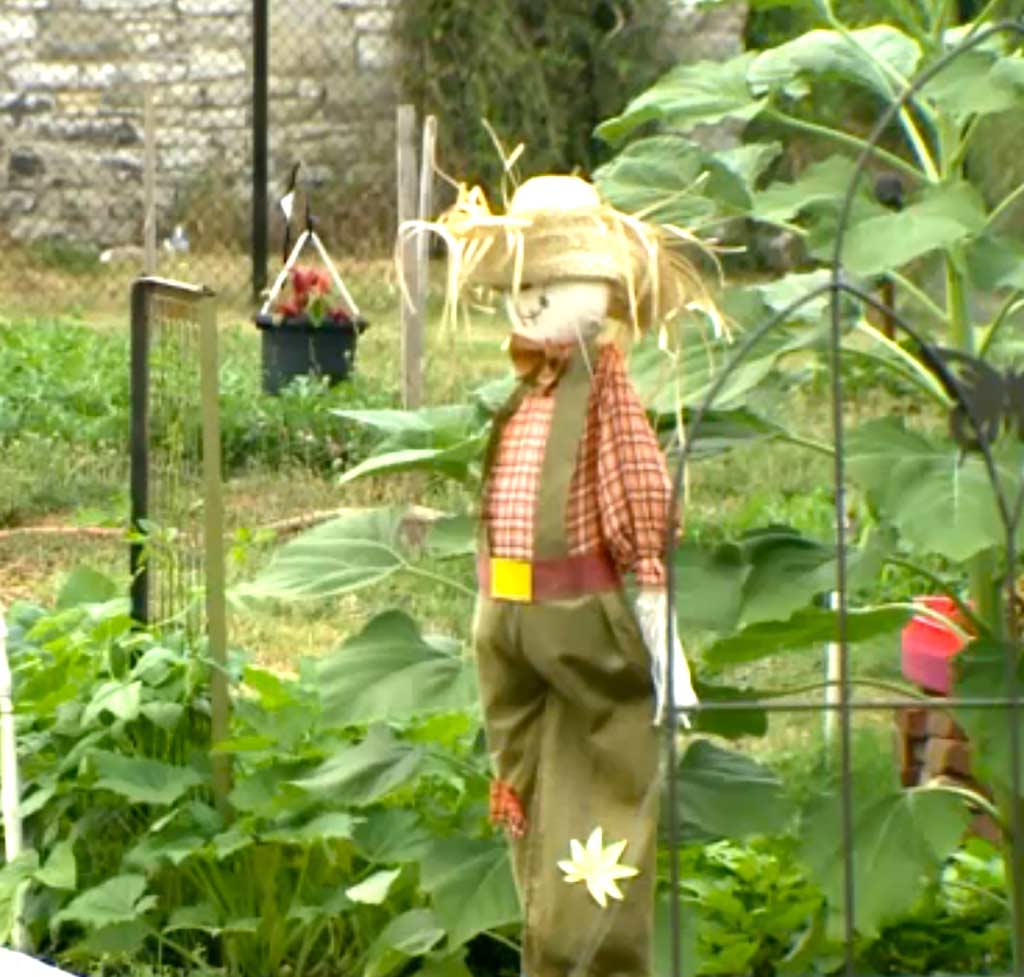 I know then that I have made these volunteers feel welcomed. That’s what the garden is all about. They always want to work hard and there is a lot of hard work to be done in the garden. We need them. We know how to work with people, talk with people and make them feel good. We want them to say, “We work hard down there in that garden and we certainly enjoy it.”
I know then that I have made these volunteers feel welcomed. That’s what the garden is all about. They always want to work hard and there is a lot of hard work to be done in the garden. We need them. We know how to work with people, talk with people and make them feel good. We want them to say, “We work hard down there in that garden and we certainly enjoy it.”
Gardening is truly my passion. I love gardening. That is truly my passion. We grow collard greens, tomatoes, an assortment of peppers, spinach, assortment of lettuce, an assortment of herbs, zucchini, squash, carrots, watermelon, pumpkins, mustard greens, turnip greens, beans, bush beans, pole beans, okra, and last year there was a harvest of a good four hundred pounds of sweet potatoes. I’m looking forward to getting involved with UMSL. They are going to supply us with a lot of heirloom seeds. Those heirloom tomatoes taste much better than other tomatoes. They are the most delicious
3. What was your best day being a community garden manager?
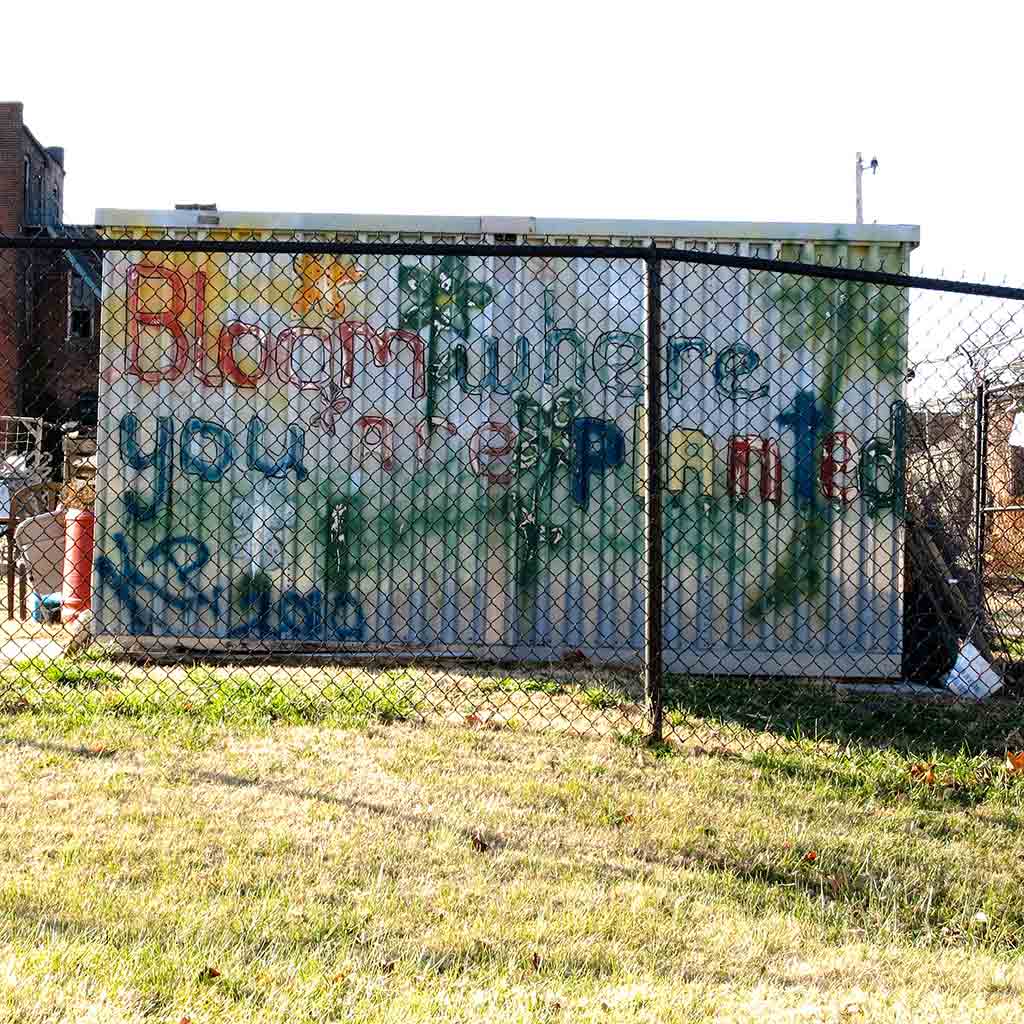 Every day is my best day, OK. Every day I get up with the thought in my mind, “What am I going to do today in the garden? Lord let me meet the right people. Let me say the right thing. Let me do something today that people can learn from the garden and take away something.” It may sound ridiculous, but every day is my best day in the garden. Really. Yep.
Every day is my best day, OK. Every day I get up with the thought in my mind, “What am I going to do today in the garden? Lord let me meet the right people. Let me say the right thing. Let me do something today that people can learn from the garden and take away something.” It may sound ridiculous, but every day is my best day in the garden. Really. Yep.
4. What was your worst day being community garden manager?
My worst day is this: when it is raining so hard out there, there are volunteers scheduled, and they come and want to work out in the rain.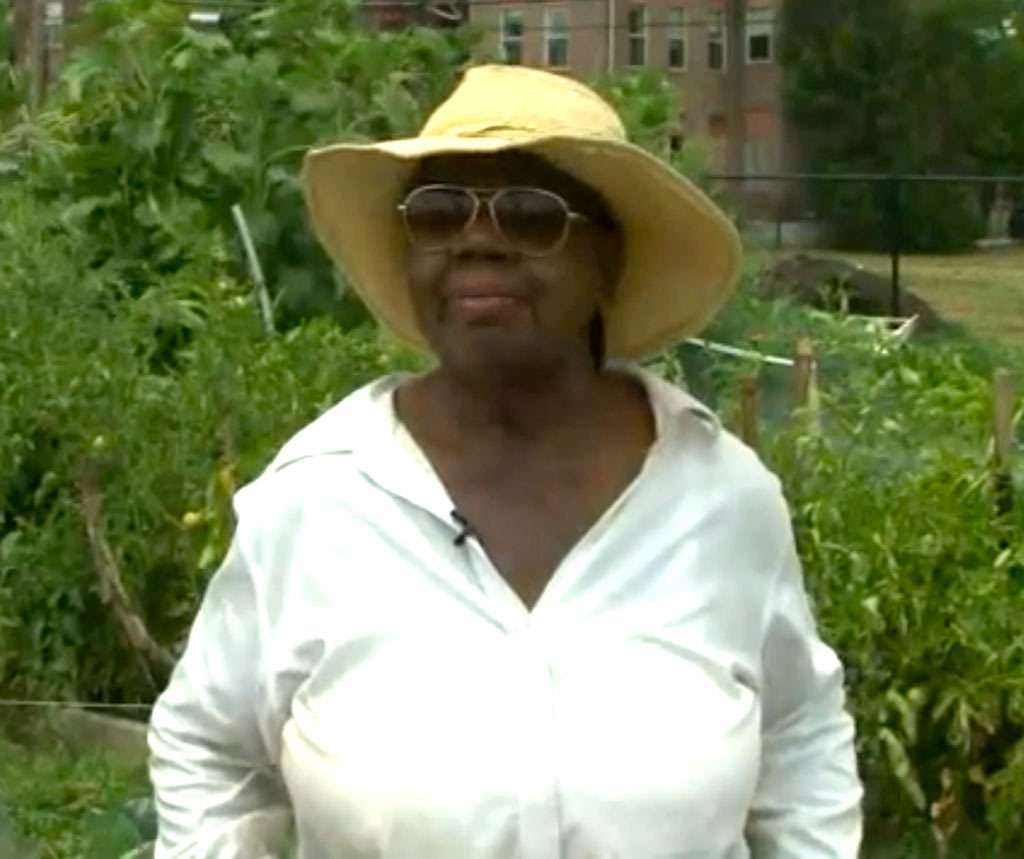 I don’t want to work out in the rain. OK. I really don’t. I have to be there because of the volunteers, but they say, “Miss Willis, we work in the rain, we don’t care what it’s doing out here.” And they don’t.
I don’t want to work out in the rain. OK. I really don’t. I have to be there because of the volunteers, but they say, “Miss Willis, we work in the rain, we don’t care what it’s doing out here.” And they don’t.
There are a lot of college students and they don’t care if it is raining. But I do. I want to go in the house because I live near the garden. 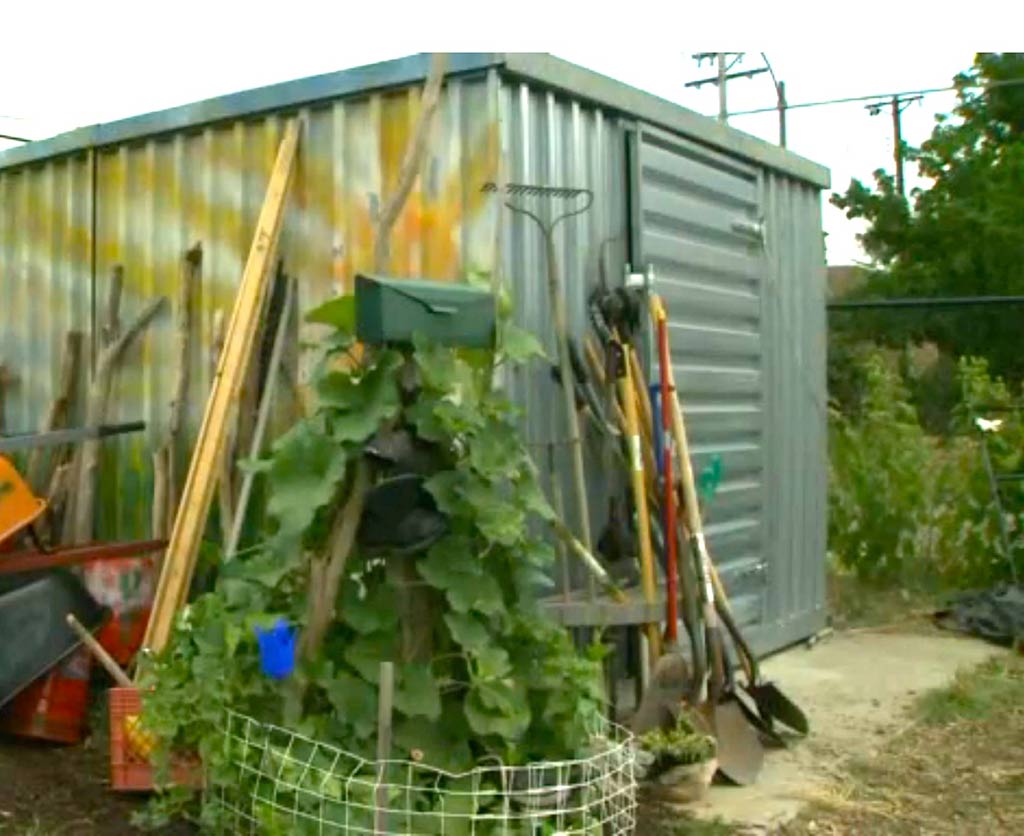 But those are my worst days – when it is pouring down rain. Even though we have a shed, the shed is not large enough to accommodate a lot of volunteers out of the rain. We have a gazebo out there but it is not covered where we can stand underneath there when it is raining. I’d like to buy a cover to go over that gazebo so that when it is one of those pouring down rain days I will let the volunteers work in the rain and I’m going to stand over here out of the rain. (Stated with fun and laughter.)
But those are my worst days – when it is pouring down rain. Even though we have a shed, the shed is not large enough to accommodate a lot of volunteers out of the rain. We have a gazebo out there but it is not covered where we can stand underneath there when it is raining. I’d like to buy a cover to go over that gazebo so that when it is one of those pouring down rain days I will let the volunteers work in the rain and I’m going to stand over here out of the rain. (Stated with fun and laughter.)
5. How did you survive your worst day?
I pull myself together and say, “If they are going to do it, I’m going to do it.” Once you get started working the rain can become liquid sunshine. 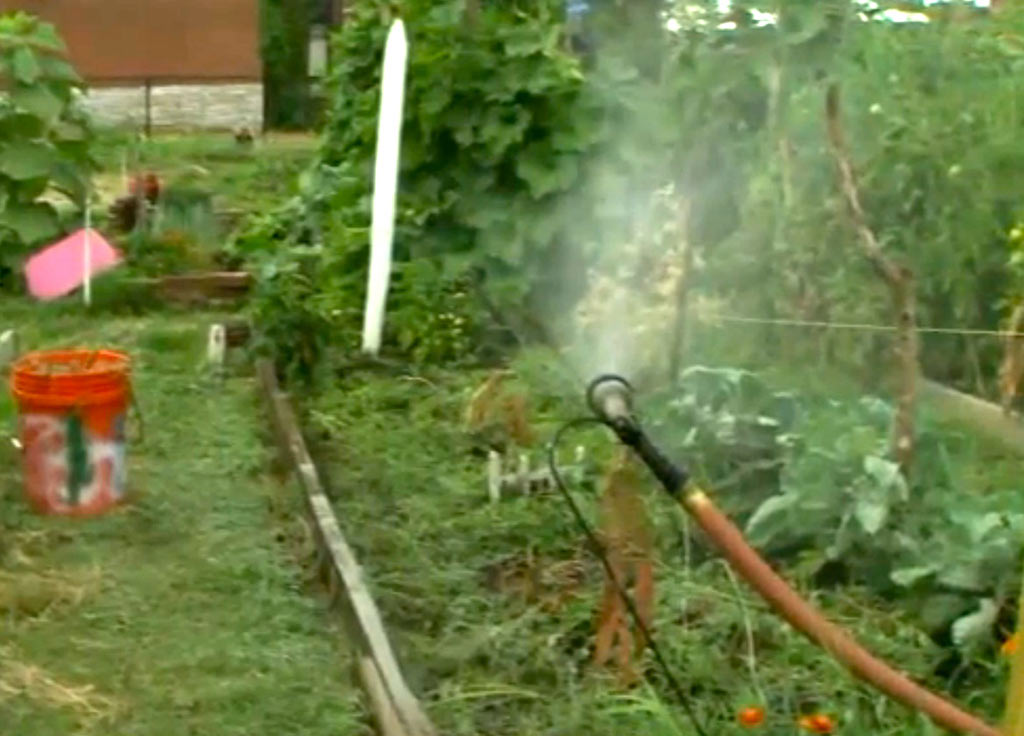 I pull myself together and say, “I don’t care if it is raining. I don’t care if I am muddy and wet and ugly looking. I don’t care if my shoes are full of mud. I don’t care because there is always so much work to do in the garden and we have accomplished something nice even in the rain. I don’t care if it is raining any more.” That is how I recover myself.
I pull myself together and say, “I don’t care if it is raining. I don’t care if I am muddy and wet and ugly looking. I don’t care if my shoes are full of mud. I don’t care because there is always so much work to do in the garden and we have accomplished something nice even in the rain. I don’t care if it is raining any more.” That is how I recover myself.
It’s got to be God that gives me this attitude. I don’t know what else it is. I know that when I lived in the south my people were sharecroppers. We lived in this little town called Blytheville, Arkansas. My parents were sharecroppers. 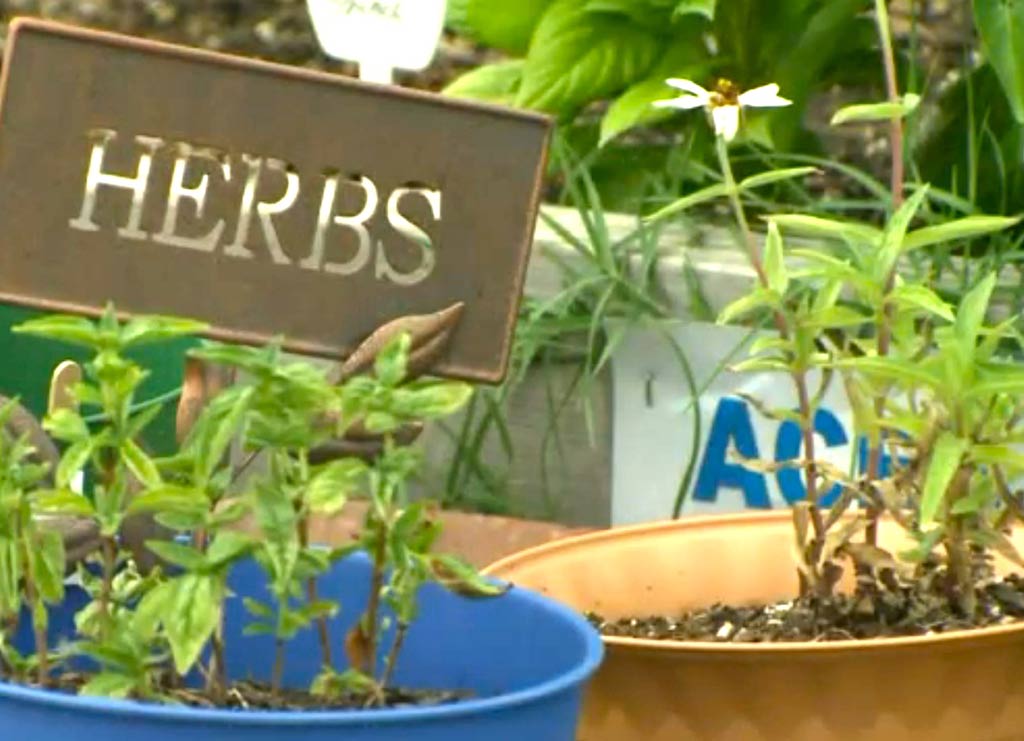 My mother was a housewife. She had this beautiful yard that had no grass in it but was all dirt. She would have my brother and I get out there and sweep this dirt. There was no loose dirt in the yard. A beautiful yard and there was not a blade of grass in it, just dirt. She used to make my brother and me get out there and sweep that dirt clean. There was no loose dirt laying around out there in that dirty yard, no grass just dirt. But she had all these flowers. She had all these old flower, beautiful flowers, all these flowers around the yard. My brother and me had to keep all this dirt clean.
My mother was a housewife. She had this beautiful yard that had no grass in it but was all dirt. She would have my brother and I get out there and sweep this dirt. There was no loose dirt in the yard. A beautiful yard and there was not a blade of grass in it, just dirt. She used to make my brother and me get out there and sweep that dirt clean. There was no loose dirt laying around out there in that dirty yard, no grass just dirt. But she had all these flowers. She had all these old flower, beautiful flowers, all these flowers around the yard. My brother and me had to keep all this dirt clean.
6. What advice do you have for someone who would like to be a community garden manager?
I would tell them to find someone first that would let them come in and do volunteer work in the garden. 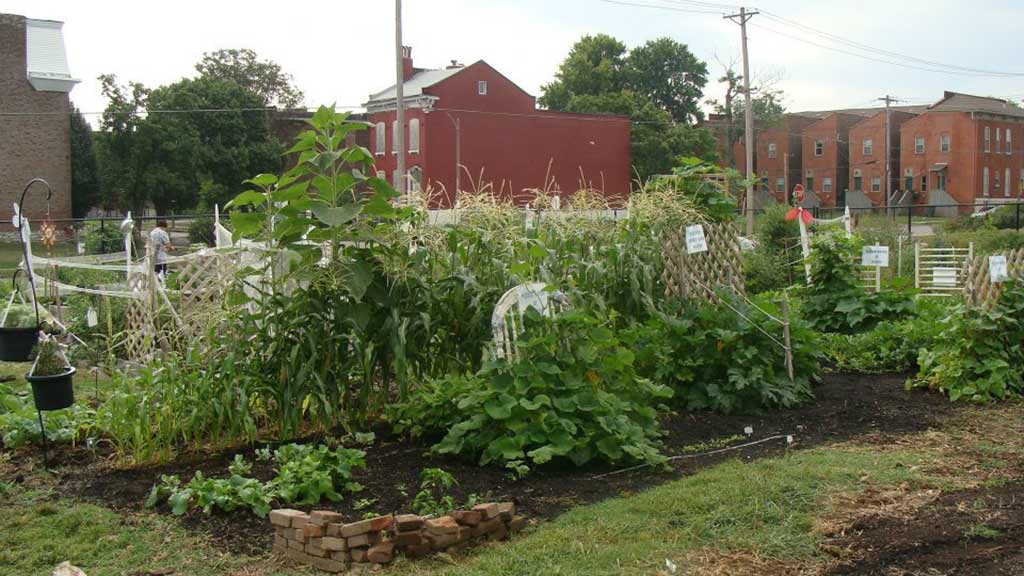 They should go over there and get involved in another garden project first the way I was involved in Gateway Greening. I loved it over there. Go and find some garden – not some garden that is struggling along just barely making it and is more weeds than grass – try to get involved with a productive, growing garden. They should do volunteer work and believe me whoever is in charge of that garden will love you for it. Do volunteer work there and learn all about the good in the garden, the bad, and the everything-in-between before you go out and create your own community garden.
They should go over there and get involved in another garden project first the way I was involved in Gateway Greening. I loved it over there. Go and find some garden – not some garden that is struggling along just barely making it and is more weeds than grass – try to get involved with a productive, growing garden. They should do volunteer work and believe me whoever is in charge of that garden will love you for it. Do volunteer work there and learn all about the good in the garden, the bad, and the everything-in-between before you go out and create your own community garden.
If you have space around your house, create your own little backyard garden. 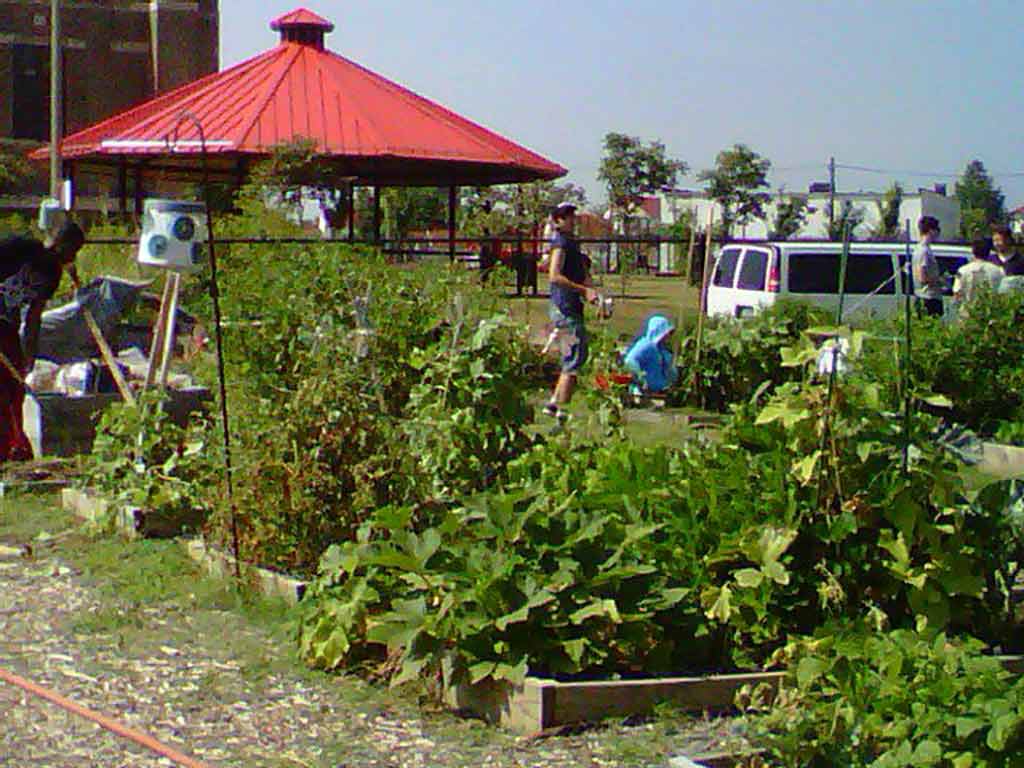 See what it is like first. Gardening is more than just beautification. Our garden is lovely in the spring. It is all green and lush. There is so much produce out there to eat. But that took work to get those little tiny seeds from a little bitty little thing over here to a giant vegetable that we can eat.
See what it is like first. Gardening is more than just beautification. Our garden is lovely in the spring. It is all green and lush. There is so much produce out there to eat. But that took work to get those little tiny seeds from a little bitty little thing over here to a giant vegetable that we can eat.
Having a garden is just like raising children. You don’t have children and say, “OK. You are on your own now.” You have to nurture those children and raise them and do the right thing for those children. The same thing is true for the garden. You don’t just throw some seeds out there and say, “Oh well. I’m going to wait any day now maybe I’ll have some tomatoes.” You may have some but what will they be like? So I would tell people to first volunteer. You can always volunteer at Fresh Starts Community Garden. I have room for you.
- « Previous person: Roger Brandt
- » Next person: Barnette Johnson